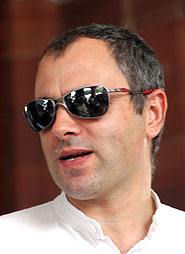Pakistan tryst with match fixing continues
By: Subhadeep Bhattacharjee
Scyld Berry the editor of Wisden Cricketers' Almanack wrote in Australia’s renowned newspaper The Sydney Morning Herald wrote “It is only natural that cricketers - or some of them at least - should reflect the society from which they come. And Pakistan is, and has been almost throughout its existence, ridd
 led with corruption.” This after the world of cricket has been dragged to another major match fixing scandal, the biggest perhaps since the last which threatened the game in the year 2000.
led with corruption.” This after the world of cricket has been dragged to another major match fixing scandal, the biggest perhaps since the last which threatened the game in the year 2000.Many might call this as a very racist remark considering it comes from an Englishman whose historical and cultural respect for Asians is nobody’s guess. But isn’t it also true that when people are citizens of failed democracy who see corruption all around, are they to have the same kind of pride and respect for their nation. When these cricketers see their counterparts in India making millions aren’t they tempted to cross the line? That’s the entire point in Berry’s argument.
The defence for this cannot be strong as Pakistani team historically has been no saint’s army. The team has had a history of being in the news for all the wrong reasons in all its years cricketing history. From tampering with the ball to fighting in the pubs the team has done it all in the past. The team which is packed with talent has crossed the danger line too often to give it any benefit of doubt. This is not the first time that the Pakistani team’s name has been dragged into a match fixing controversy.
Be it the 1999 World Cup’s loss versus Pakistan or loss to minnows Ireland in the last edition of the mega event which even lead to coach Bob Wolmer’s suspicious death, Pakistani cricket has always had its shades of grey. Facing commissions and enquiries for such occurrences is nothing new for the Pakistani team as generations of players right from Imran Khans to the Shahid Afridis have faced questioning related to match fixing, use of drugs, ball tempering and even a mysterious death of a coach.
England’s dramatic comeback in the allegedly fixed test match and Pakistan’s school boyish bowling performance might just be one of those natural happenings in the game of cricket. But to the naked eyes it seems too much to be true. Millions of cricket fans around the world will be hoping that Pakistani players come out clean of this as this has the potential to tarnish the game like it did a decade ago.












